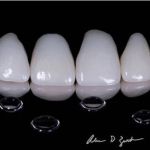Healthy Mouth Care: Essential Tips for Maintaining a Bright Smile
- Understanding Healthy Mouth Care
- The Importance of Daily Oral Hygiene
- Choosing the Right Toothpaste and Tools for Healthy Mouth Care
- Common Oral Health Issues and How to Prevent Them
- Visiting the Dentist for Preventive Care
- How Healthy Mouth Care Affects Overall Health
1. Understanding Healthy Mouth Care
Healthy mouth care is not just about brushing your teeth every day; it involves a combination of daily habits, proper oral hygiene practices, and regular visits to the dentist to maintain a healthy and functional smile. Oral health is crucial for your overall well-being and can influence your physical health in various ways.
A healthy mouth is free from cavities, gum disease, and other oral health issues that can cause pain and discomfort. More importantly, good oral hygiene is essential in preventing more severe health conditions, such as heart disease, diabetes, and respiratory infections. Developing a comprehensive healthy mouth care routine is key to keeping your teeth and gums in top condition.
2. The Importance of Daily Oral Hygiene
The foundation of healthy mouth care begins with consistent, proper daily oral hygiene. Brushing and flossing are the two most important practices for maintaining a healthy mouth. It’s recommended that you brush your teeth at least twice a day, using fluoride toothpaste, to remove plaque, food particles, and prevent cavities.
Brushing should be done with a soft-bristled toothbrush to avoid damaging the gums. It's essential to brush for at least two minutes each time to ensure you clean all areas of your teeth, including the difficult-to-reach spots. Flossing is equally important because it removes food particles and plaque between your teeth and along the gumline where your toothbrush can’t reach.
In addition to brushing and flossing, using an antibacterial mouthwash can help reduce bacteria, freshen your breath, and provide added protection against gum disease. Establishing these simple yet effective habits can prevent a variety of oral health issues and ensure a bright, healthy smile.
3. Choosing the Right Toothpaste and Tools for Healthy Mouth Care
Selecting the right toothpaste and oral care tools is essential for maintaining optimal oral health. Toothpaste with fluoride is the gold standard for cavity prevention and enamel protection. If you have sensitive teeth or gums, you might consider using a toothpaste specifically formulated for sensitivity. For those prone to gum disease, toothpaste with added antimicrobial ingredients can help manage plaque and bacteria.
In addition to toothpaste, choosing the right toothbrush is just as important. Manual toothbrushes are effective, but electric toothbrushes may offer a more thorough clean with less effort. Look for a toothbrush with a small head to access hard-to-reach areas and soft bristles to avoid damaging your gums.
Don’t forget about flossing tools either. Traditional dental floss is great, but alternatives such as floss picks or water flossers can also be effective in maintaining gum health. For a complete oral care routine, choose products that are designed to suit your specific needs and preferences.
4. Common Oral Health Issues and How to Prevent Them
Despite our best efforts, common oral health issues like cavities, gum disease, and bad breath can still occur. Let’s explore some of these issues and ways to prevent them:
Cavities
Cavities, or tooth decay, occur when plaque builds up on your teeth and produces acids that erode tooth enamel. The best way to prevent cavities is through consistent brushing with fluoride toothpaste, flossing to remove plaque, and reducing sugar intake. Regular dental checkups also help detect early signs of decay, allowing for timely intervention.
Gum Disease
Gum disease, or periodontal disease, occurs when plaque and tartar build up along the gumline, causing irritation and infection. In its early stages, it can be reversed with proper oral hygiene, but untreated gum disease can lead to tooth loss. Prevent gum disease by brushing and flossing regularly, using an antimicrobial mouthwash, and visiting your dentist for professional cleanings.
Bad Breath
Bad breath, or halitosis, can be caused by poor oral hygiene, gum disease, or even underlying health conditions. To combat bad breath, brush your tongue, gums, and teeth regularly, use mouthwash, and stay hydrated to prevent dry mouth. If bad breath persists, consult your dentist to rule out any medical issues.
5. Visiting the Dentist for Preventive Care
While daily oral care is crucial, regular visits to the dentist play an essential role in maintaining long-term oral health. A dentist can identify potential problems early, such as cavities, gum disease, or oral cancer, and provide treatment before they become severe.
The American Dental Association recommends visiting the dentist at least twice a year for a professional cleaning and checkup. During these visits, your dentist will remove plaque and tartar buildup, which can’t be removed with regular brushing and flossing. They will also check for signs of tooth decay, gum disease, and other issues.
Regular dental visits also give you the opportunity to ask your dentist about any concerns you may have regarding your oral health. They can offer personalized advice and tips to help you maintain a healthy mouth.
6. How Healthy Mouth Care Affects Overall Health
The health of your mouth is closely linked to your overall well-being. Poor oral health can contribute to systemic health problems, such as heart disease, diabetes, and stroke. Studies have shown that individuals with gum disease are at a higher risk of developing these conditions, as the bacteria in the mouth can enter the bloodstream and affect other parts of the body.
Maintaining a healthy mouth through regular brushing, flossing, and dental visits not only helps prevent tooth loss and gum disease but also improves your overall health. Taking care of your teeth and gums is an investment in your long-term health and quality of life.
To promote a healthy mouth and body, practice good oral hygiene, avoid smoking, eat a balanced diet, and schedule regular dental checkups. By doing so, you’re taking a proactive approach to both your oral health and overall well-being.







 Ascend Dental - Dr. Zurek and Dr. Sikora5.0 (174 review)
Ascend Dental - Dr. Zurek and Dr. Sikora5.0 (174 review) River Hills Dentistry4.0 (216 review)
River Hills Dentistry4.0 (216 review) Nuttall Smiles4.0 (424 review)
Nuttall Smiles4.0 (424 review) Surprise Endodontics4.0 (170 review)
Surprise Endodontics4.0 (170 review) Dr. Daniel J. Harmon, DDS3.0 (10 review)
Dr. Daniel J. Harmon, DDS3.0 (10 review) Southern Smiles Newnan5.0 (449 review)
Southern Smiles Newnan5.0 (449 review) The Importance of Oral Health Education During Pregnancy for a Healthy Pregnancy
The Importance of Oral Health Education During Pregnancy for a Healthy Pregnancy Best Tips for Brushing Your Teeth Properly for Healthy Gums: Essential Techniques for Oral Health
Best Tips for Brushing Your Teeth Properly for Healthy Gums: Essential Techniques for Oral Health Why Skipping Dental Checkups Can Lead to Bigger Oral Health Problems
Why Skipping Dental Checkups Can Lead to Bigger Oral Health Problems Advantages of Porcelain Dental Restorations
Advantages of Porcelain Dental Restorations How Can Diabetes Cause Tooth and Gum Problems? Preventing and Managing Oral Health Issues
How Can Diabetes Cause Tooth and Gum Problems? Preventing and Managing Oral Health Issues Healthy Habits for Promoting Good Oral Health and Hygiene: Tips for a Healthy Smile
Healthy Habits for Promoting Good Oral Health and Hygiene: Tips for a Healthy Smile